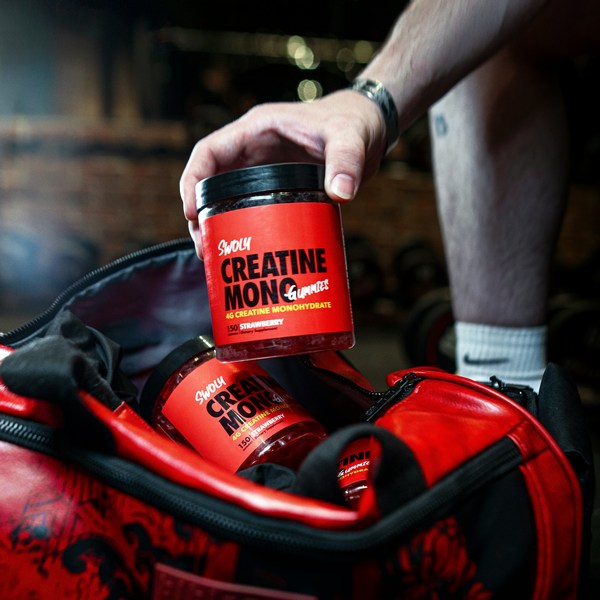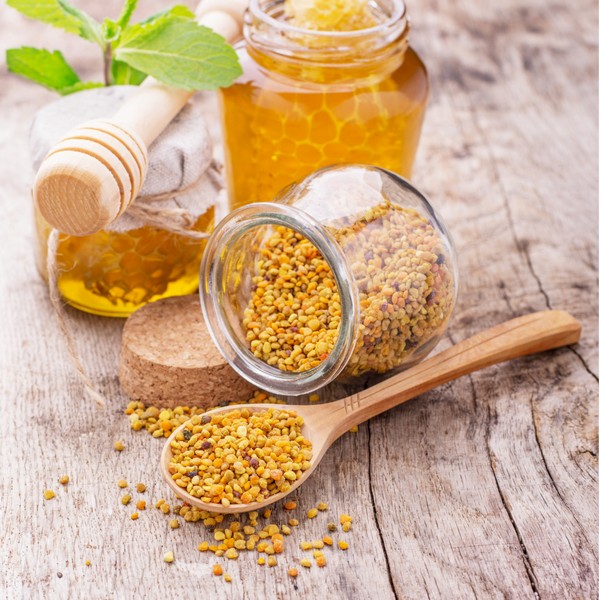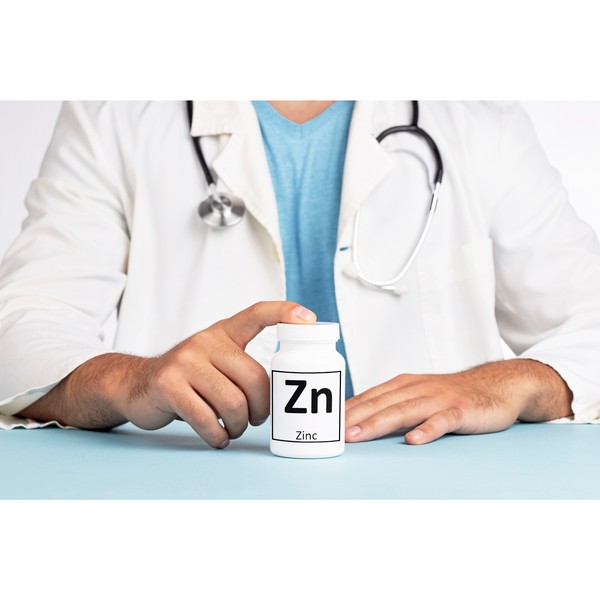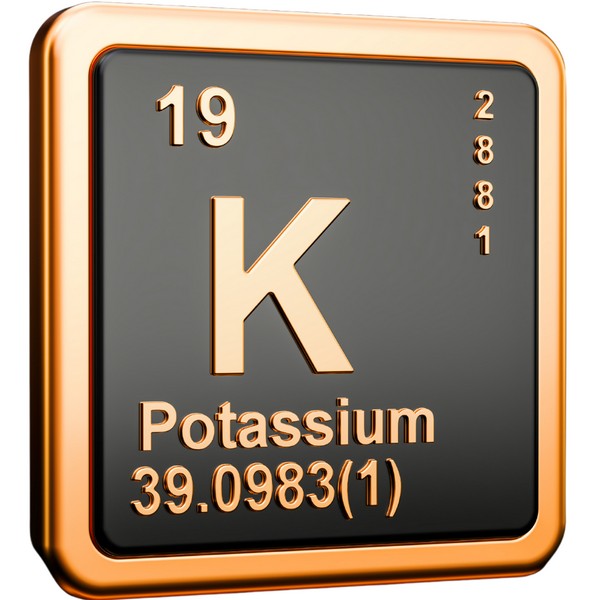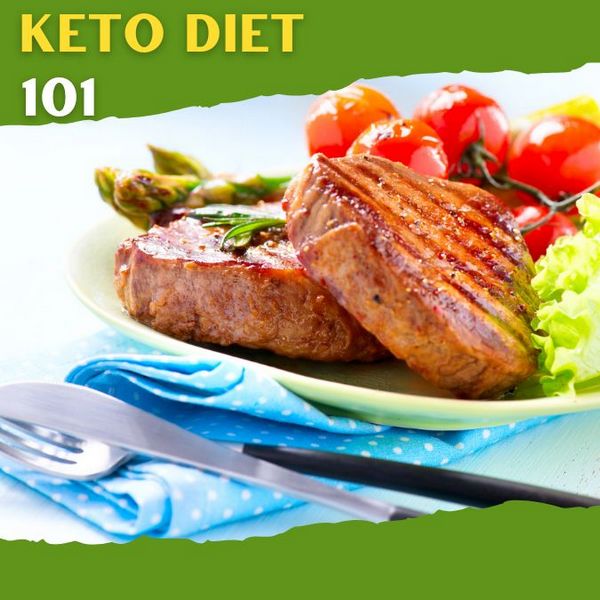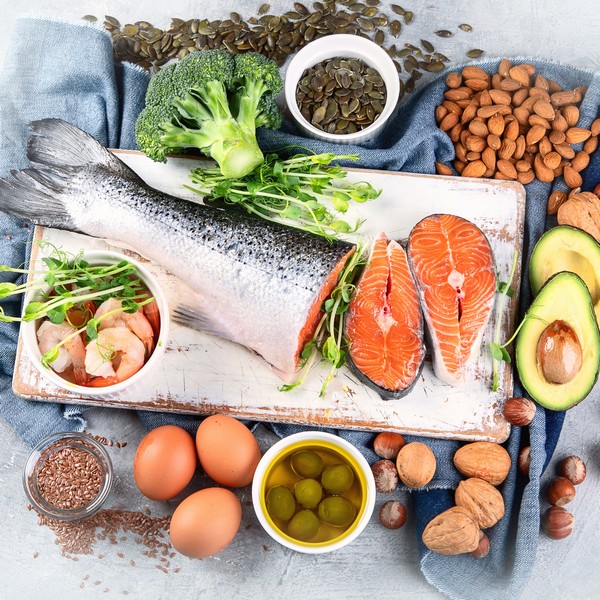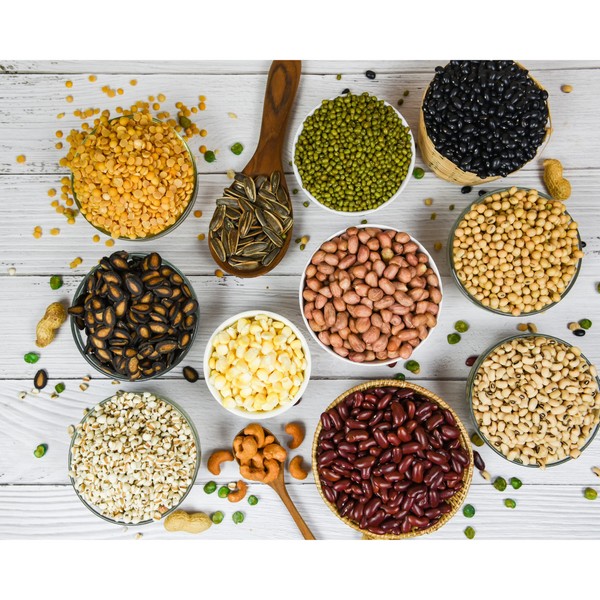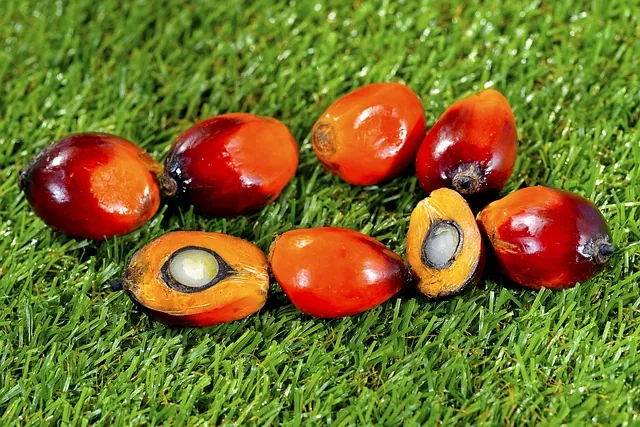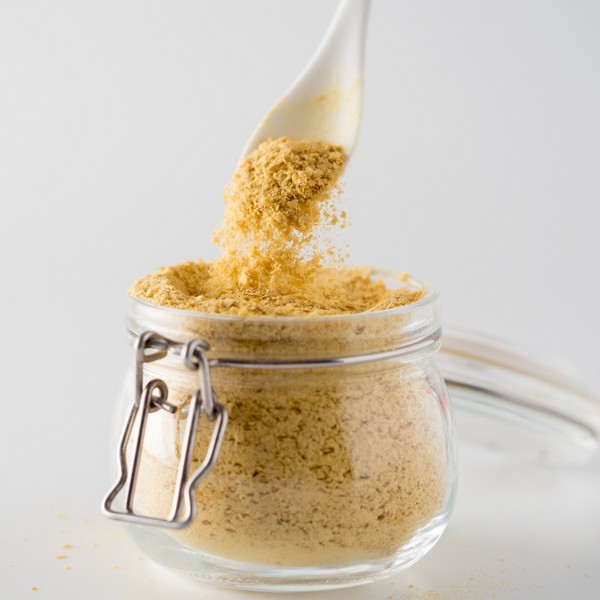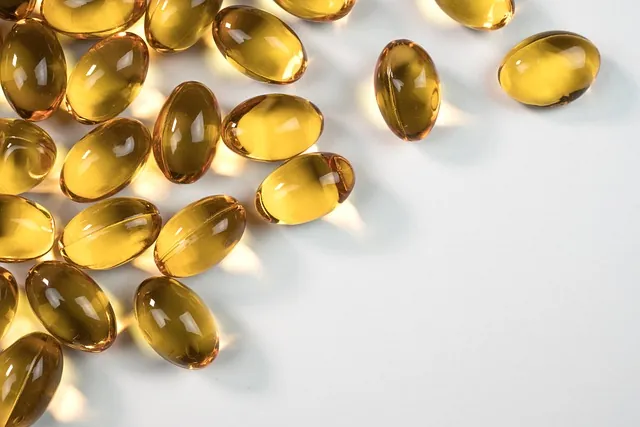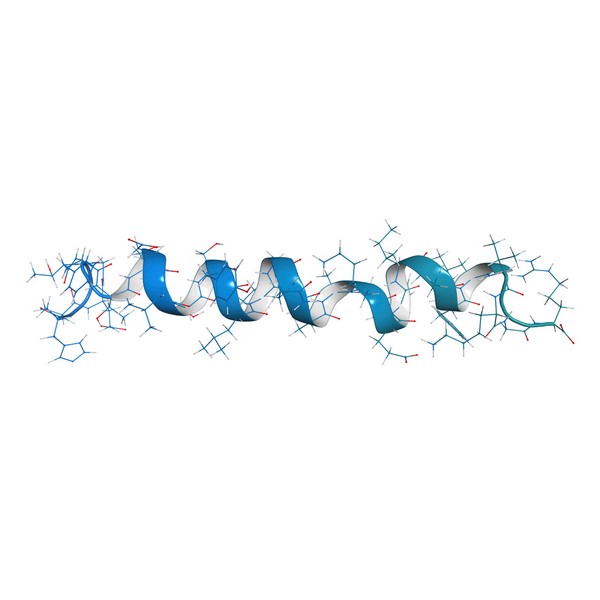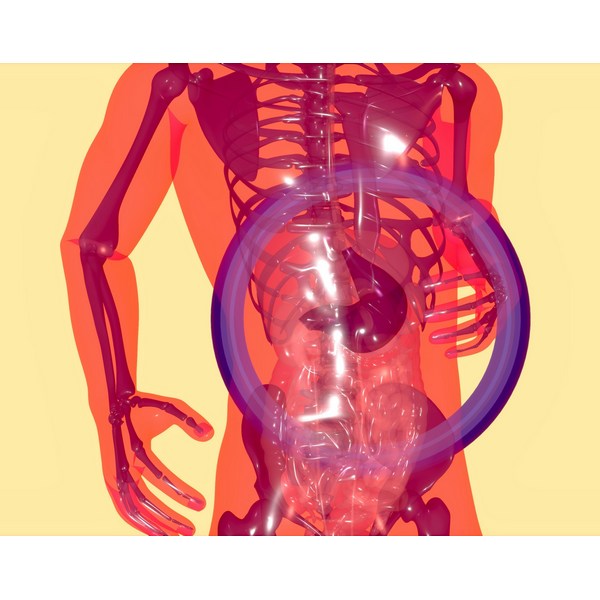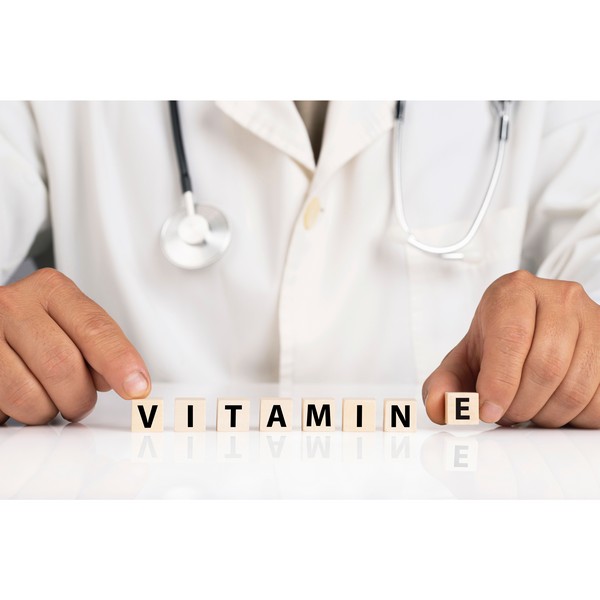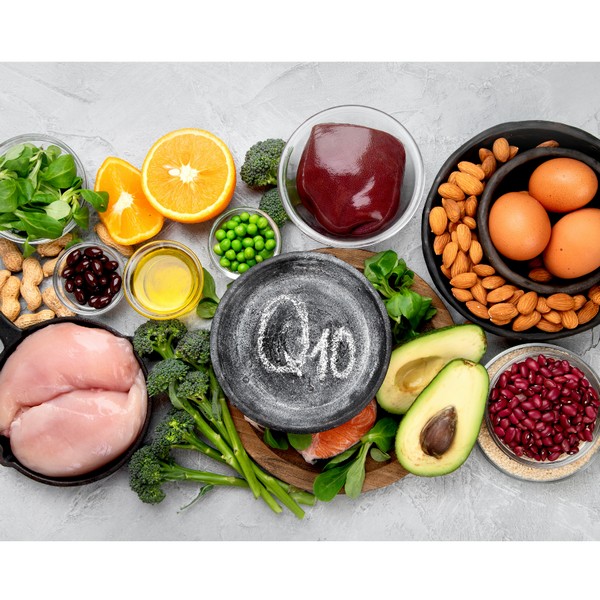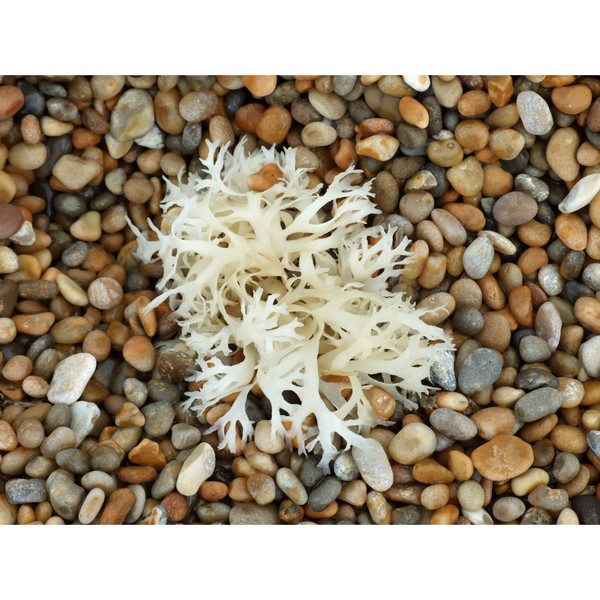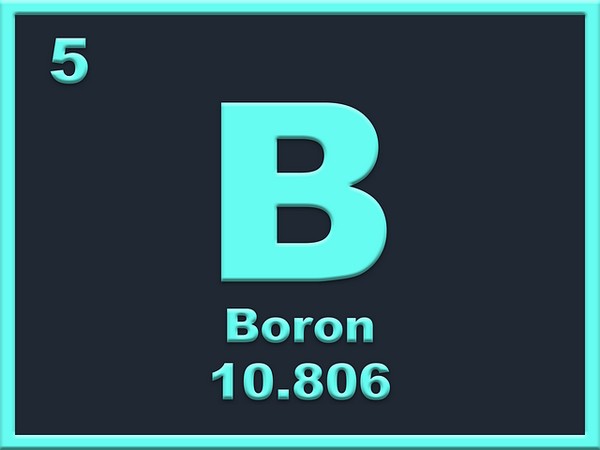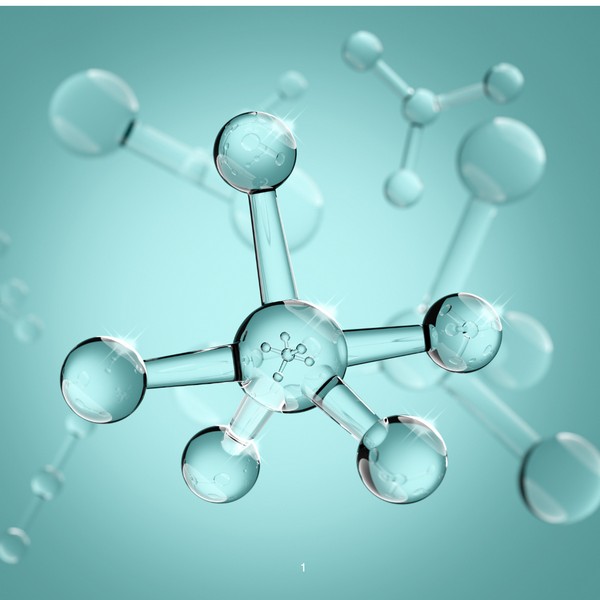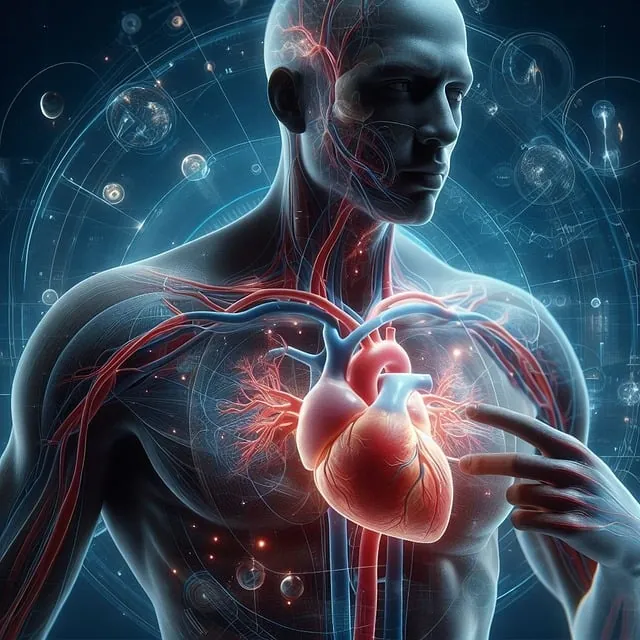Key Takeaways:
- Natural Vitamin A, also known as Retinol, is crucial for vision, immune function, and skin health.
- Retinol is essential for healthy vision, particularly in low-light conditions.
- Deficiency in Vitamin A can lead to vision problems, weakened immunity, and skin issues.
- Foods like liver, egg yolks, and dairy products are the richest sources of Retinol.
- Beta-carotene, found in plant foods, must be converted to Retinol, but this process is inefficient.
What is Vitamin A (Retinol)?
Vitamin A, specifically Retinol, is a fat-soluble vitamin essential for several bodily functions. Retinol, the active form of Vitamin A, plays a key role in maintaining healthy vision, supporting immune function, and promoting healthy skin.
Unlike its plant-based precursor, beta-carotene, Retinol is ready to be used by the body without needing conversion.
Benefits of Vitamin A (Retinol)
Vision Health
Retinol is vital for vision, especially in low-light conditions. It forms a component of rhodopsin, a protein in your eyes that absorbs light.
Adequate levels of Vitamin A prevent night blindness and support overall eye health.
Healthy Blood

Retinol, is very important for hemoglobin production and overall blood health. Retinol plays a significant role in restoring hemoglobin levels and curing anemia, while iron alone cannot sustain healthy blood without it.
The body primarily relies on the reticuloendothelial system to recycle iron rather than dietary intake, making Retinol essential for efficient iron utilization and maintaining healthy red blood cell levels.
Immune Support

Vitamin A strengthens the immune system by maintaining the integrity of mucous barriers in your eyes, lungs, gut, and genitals, acting as a line of defense against infections.
It also supports the production and function of white blood cells, crucial in fighting off pathogens.
Skin Health
Retinol is known for its skin-enhancing properties. It supports cell production and growth, making it a common ingredient in skincare products.
Retinol helps reduce acne, smooth wrinkles, and improve skin texture by stimulating collagen production.
Sources of Vitamin A (Retinol)

Animal-Based Sources
Retinol is most abundantly found in animal-based foods. Liver, particularly from beef, lamb, or cod, is an exceptional source.
Other sources include egg yolks, whole milk, cheese, and butter. These foods provide Retinol in a form that your body can immediately utilize.
Plant-Based Sources
While plant-based foods do not contain Retinol, they do provide beta-carotene, a precursor that some people can convert to Vitamin A.
However, this conversion is often inefficient. Carrots, sweet potatoes, spinach, and kale are rich in beta-carotene but require large amounts to meet the body’s needs for Vitamin A.
Deficiency and Health Risks

A deficiency in Vitamin A can lead to serious health issues. The most common symptom is night blindness, where individuals struggle to see in low light.
Other symptoms include a higher susceptibility to infections, dry skin, and issues with fertility.
In severe cases, prolonged deficiency can lead to complete blindness and increase the risk of maternal mortality during pregnancy.
Recommended Daily Intake
The recommended daily intake of Vitamin A varies by age, sex, and life stage. For adult men, the RDA is around 900 micrograms (mcg), while for women, it is 700 mcg.
Pregnant and breastfeeding women require higher amounts to support fetal development and lactation.
Beta-carotene vs Retinol
While beta-carotene from plant sources is beneficial, it’s not as effective as Retinol from animal sources.
The body’s ability to convert beta-carotene to Retinol is limited, making animal sources a more reliable way to meet Vitamin A needs.
Some individuals cannot even convert beta-carotene to Retinol.
Those following a strict vegetarian or vegan diet may need to monitor their Vitamin A intake closely and consider supplements.
Conclusion
Vitamin A (Retinol) is indispensable for maintaining good vision, a strong immune system, and healthy skin. The best sources of this nutrient are animal-based foods, which provide Retinol in a form readily used by the body. Ensuring adequate intake of this vitamin is crucial to avoid deficiency and its associated health risks.
FAQs
Q: Can I get enough Vitamin A from a plant-based diet?
A: It’s challenging to get adequate Retinol from a plant-based diet because the conversion of beta-carotene to Retinol is inefficient. Monitoring intake and considering supplements may be necessary.
Q: What are the signs of Vitamin A deficiency?
A: Common signs include night blindness, dry skin, frequent infections, and in severe cases, complete blindness.
Q: Is too much Vitamin A harmful?
A: Yes, excessive intake of Vitamin A, especially from supplements, can lead to toxicity. Symptoms include dizziness, nausea, and even liver damage.
Q: How does Vitamin A benefit the skin?
A: Vitamin A supports skin health by promoting cell production, reducing acne, and smoothing wrinkles. It is often used in anti-aging skincare products.
Research
Alberts B et al. Molecular Biology of the Cell. 4th edition. New York: Garland Science; 2002.
Balmer JE, Blomhoff R. Gene expression regulation by retinoic acid. J Lipid Res. 2002 Nov;43(11):1773-808. doi: 10.1194/jlr.r100015-jlr200. PMID: 12401878.
Biesalski HK, Frank J, Beck SC, Heinrich F, Illek B, Reifen R, Gollnick H, Seeliger MW, Wissinger B, Zrenner E. Biochemical but not clinical vitamin A deficiency results from mutations in the gene for retinol binding protein. The American Journal of Clinical Nutrition. 1999;69(5):931-936.
Burrows, M.T., 1931. Clinical and Experimental Observations Relative to the Etiology of Cancer. Radiology, [online] 17(4), pp.775–788.
https://doi.org/10.1148/17.4.775.
BURROWS MT, JORSTAD LH. CAUSE OF GROWTH OF SARCOIDS OR OIL TUMORS. JAMA. 1927;88(19):1460–1462. doi:10.1001/jama.1927.02680450004002
BURROWS, M.T., 1926. CANCER, VITAMIN IMBALANCE, AND ROENTGEN-RAY ACTIVITY. JAMA: The Journal of the American Medical Association, [online] 87(2), p.86. https://doi.org/10.1001/jama.1926.02680020014004.
Cantorna MT, Waddell A. The vitamin D receptor turns off chronically activated T cells. Annals of the New York Academy of Sciences. 2014;1317(1):70–75.
Caire-Juvera G, Ritenbaugh C, Wactawski-Wende J, Snetselaar LG, Chen Z. Vitamin A and retinol intakes and the risk of fractures among participants of the Women’s Health Initiative Observational Study. The American Journal of Clinical Nutrition. 2009;89(1):323-330.
Chai W, Cooney RV, Franke AA. Plasma levels of retinol, carotenoids, and tocopherols in cancer survivors and their association with circulating 25-hydroxyvitamin D. Journal of Clinical Medicine. 2021;10(3):516.
Chaves GV, Peres WAF, Gonçalves JC, Ramalho A. Vitamin A and retinol-binding protein deficiency among chronic liver disease patients. Nutrition. 2015;31(5):664-668.
Chiplonkar SA, Agte VV, Mengale SS, Tarwadi KV. Are lifestyle factors good predictors of retinol and vitamin C deficiency in apparently healthy adults?. European Journal of Clinical Nutrition. 2002;56(2):96-104.
Cureus. Etiology, Epidemiology, Pathophysiology, Signs and Symptoms, Evaluation, and Treatment of Vitamin A (Retinol) Deficiency. 2023;15(11).
Dawson-Hughes B, Staten MA, Knowler WC, Nelson J, Vickery EM, LeBlanc ES, Neff LM, Park J, Pittas AG. Intratrial exposure to vitamin D and new-onset diabetes among adults with prediabetes: A secondary analysis from the vitamin D and type 2 diabetes (D2d) study. Diabetes Care. 2015;38(8):1420–1428.
Doldo E, Costanza G, Agostinelli S, Tarquini C, Ferlosio A, Arcuri G, Passeri D, Scioli MG, Orlandi A. Vitamin A, cancer treatment and prevention: the new role of cellular retinol binding proteins. BioMed Research International. 2015;2015(1):624627.
De Pee S, Dary O. Biochemical indicators of vitamin A deficiency: serum retinol and serum retinol binding protein. The Journal of Nutrition. 2002;132(9):2895S-2901S.
Dushnicky LG, Khurana S, Ng WP, Wang YT. Vitamin D signaling alters nuclear receptor induced hepatic drug metabolism and liver injury in mice. Scientific Reports. 2021;11(1):1–13.
Fakhrzadeh H, Larijani B, Sanjari M, Baradar-Jalili R, Amini MR, Bandarian F, Adibi H, Hoseini M. Effect of vitamin D supplementation on glucose control and insulin resistance in patients with diabetes mellitus type 2. International Journal of Vitamin and Nutrition Research. 2011;81(4):205–211.
Folli C, Viglione S, Busconi M, Berni R. Biochemical basis for retinol deficiency induced by the I41N and G75D mutations in human plasma retinol-binding protein. Biochemical and Biophysical Research Communications. 2005;336(4):1017-1022.
Ganji V, Kim ES. Serum vitamin A status is associated with circulating levels of 25-hydroxyvitamin D. Nutrients. 2014;6(3):1167–1179.
Hedrén E, Diaz V, Svanberg U. Estimation of carotenoid accessibility from carrots determined by an in vitro digestion method. Eur J Clin Nutr. 2002 May;56(5):425-30. doi: 10.1038/sj.ejcn.1601329. PMID: 12001013.
Khan NC, West CE, de Pee S, Bosch D, Phuong HD, Hulshof PJ, Khoi HH, Verhoef H, Hautvast JG. The contribution of plant foods to the vitamin A supply of lactating women in Vietnam: a randomized controlled trial. Am J Clin Nutr. 2007 Apr;85(4):1112-20. doi: 10.1093/ajcn/85.4.1112. PMID: 17413113.
Leung, W.C., Hessel, S., Méplan, C., Flint, J., Oberhauser, V., Tourniaire, F., Hesketh, J.E., von Lintig, J. and Lietz, G. (2009), Two common single nucleotide polymorphisms in the gene encoding β-carotene 15,15′-monoxygenase alter β-carotene metabolism in female volunteers. The FASEB Journal, 23: 1041-1053. https://doi.org/10.1096/fj.08-121962
Michaëlsson K, Lithell H, Vessby B, Melhus H. Serum retinol levels and the risk of fracture. New England Journal of Medicine. 2003;348(4):287-294.
Newman NJ, Capone A, Leeper HF, O'Day DG, Mandell B, Lambert SR, Thoft RA. Clinical and subclinical ophthalmic findings with retinol deficiency. Ophthalmology. 1994;101(6):1077-1083.
Olsen T, Blomhoff R. Retinol, retinoic acid, and retinol-binding protein 4 are differentially associated with cardiovascular disease, type 2 diabetes, and obesity: an overview of human studies. Advances in Nutrition. 2020;11(3):644-666.
Palmer AC, West KP, Dalmiya N, Schultink W. The use and interpretation of serum retinol distributions in evaluating the public health impact of vitamin A programmes. Public Health Nutrition. 2012;15(7):1201-1215.
Patil S, Zamwar UM, Mudey A. Etiology, Epidemiology, Pathophysiology, Signs and Symptoms, Evaluation, and Treatment of Vitamin A (Retinol) Deficiency. Cureus. 2023;15(11).
Reboul E, Richelle M, Perrot E, Desmoulins-Malezet C, Pirisi V, Borel P. Bioaccessibility of carotenoids and vitamin E from their main dietary sources. J Agric Food Chem. 2006 Nov 15;54(23):8749-55. doi: 10.1021/jf061818s. PMID: 17090117.
Reay WR, Kiltschewskij DJ, Di Biase MA, Gerring ZF, Kundu K, Surendran P, Greco LA, Clarke ED, Collins CE, Mondul AM, Albanes D. Genetic influences on circulating retinol and its relationship to human health. Nature Communications. 2024;15(1):1490.
Sauberlich HE, Hodges RE, Wallace DL, Kolder H, Canham JE, Hood J, Raica Jr N, Lowry LK. Vitamin A metabolism and requirements in the human studied with the use of labeled retinol. Vitamins & Hormones. 1975;32:251-275.
Saraiva BC, Soares MC, Santos LCD, Pereira SC, Horta PM. Iron deficiency and anemia are associated with low retinol levels in children aged 1 to 5 years. Jornal de Pediatria. 2014;90(6):593-599.
https://doi.org/10.1016/j.jped.2014.03.003
Seeliger MW, Biesalski HK, Wissinger B, Gollnick H, Gielen S, Frank J, Beck S, Zrenner E. Phenotype in retinol deficiency due to a hereditary defect in retinol binding protein synthesis. Investigative Ophthalmology & Visual Science. 1999;40(1):3-11.
Steinhoff JS, Lass A, Schupp M. Retinoid homeostasis and beyond: how retinol binding protein 4 contributes to health and disease. Nutrients. 2022;14(6):1236.
Stephensen CB. Vitamin A, infection, and immune function. Annu Rev Nutr. 2001;21:167-92. doi: 10.1146/annurev.nutr.21.1.167. PMID: 11375434.
Talsma, E. F., Verhoef, H., Brouwer, I. D., Hulshof, P. J., & Melse-Boonstra, A. (2015). Proxy markers of serum retinol concentration, used alone and in combination, to assess population vitamin A status in Kenyan children: A cross-sectional study. BMC Medicine, 13.
https://doi.org/10.1186/s12916-014-0256-5
Tang G. Bioconversion of dietary provitamin A carotenoids to vitamin A in humans. American Journal of Clinical Nutrition. 2010;91(5):1468S-1473S.
Thurnham DI, McCabe GP, Northrop-Clewes CA, Nestel P. Effects of subclinical infection on plasma retinol concentrations and assessment of prevalence of vitamin A deficiency: meta-analysis. The Lancet. 2003;362(9401):2052-2058.
World Health Organization. Serum retinol concentrations for determining the prevalence of vitamin A deficiency in populations. 2011. No. WHO/NMH/NHD/MNM/11.3.
The Impact of Ultra-Processed Foods on Your Wellbeing
Every bite we take is a step toward either wellness or illness. In our fast-paced world, ultra-processed foods have become a staple, silently shaping our…
Healthy Fat: is Butter Better?
Key Takeaways Saturated fats, like those found in butter, may not be as harmful as once thought and can be part of a healthy diet….
13 Most Dangerous Foods Revealed
Key Highlights Fugu, or pufferfish, is one of the most poisonous foods in the world, with its organs containing a neurotoxin that can paralyze motor…
Is Eating Sugar Really That Bad For Your Health?
Should You Really Be Concerned? In short, YES! Thank you, that’s all folks, and do have a good evening. Seriously though, extensive research has established…
Whole Food Vitamin C Complex: Expert Tips for Health
Key Highlights Whole food vitamin C complex is essential for a strong immune system and overall health. Unlike synthetic ascorbic acid, whole food vitamin C…
Silica: for Healthier Skin, Hair, and Nails
Key Takeaways: Silica supports strong and healthy skin, hair, and nails. It promotes bone health by boosting collagen production. Silica helps improve joint flexibility and…
How Collagen Supports Healthy Skin, Joints, and More
Key Takeaways Collagen is the most abundant protein in the body, supporting the structure of skin, bones, and connective tissues. It helps maintain skin elasticity,…
Creatine Myths Debunked: Separating Fact from Fiction
Key Takeaways Common myths about creatine, such as it causing kidney damage, weight gain, and being a steroid, are widespread but unsupported by scientific evidence….
Bee Pollen: Nature’s Secret Superfood
Key Takeaways Bee pollen is packed with essential nutrients and offers numerous health benefits. It supports immune function, boosts energy, and promotes overall well-being. Adding…
Zinc Supplements: Risks and Dangers
Key Takeaways Zinc supports immunity, wound healing, and cell growth. High zinc supplement doses can cause health problems. Always consult a healthcare provider before taking…
8 Key Signs of Nutrient Deficiency
Eggs: A Comprehensive Guide
Key Highlights Eggs are a nutritional powerhouse, containing all the essential vitamins and minerals needed for overall health. Vital role in a balanced diet, providing…
Carnivore Diet: Benefits, Risks, Food List & More
Key Takeaways The carnivore diet is a keto diet that only allows for animal-based foods, and has potential health benefits. Tips for success include hydrating,…
Taurine: The Mighty Amino Acid for Optimal Health
Key Takeaways Taurine supports heart health, regulates blood pressure, and reduces oxidative stress. Essential for muscle function, brain health, and cognitive function. Aids in insulin…
Copper: Little-Known Health Benefits
Key Takeaways Copper is an essential trace mineral with benefits, including ceruloplasmin production, energy production and antioxidant properties. Copper is critical for brain health by…
Liver: 5 Surprising Benefits Backed by Science
Hold on! Don’t run away! You need to read this. Liver is a highly nutritious organ meat that is often overlooked in modern diets. Packed…
5 Major Benefits of Omega-3 Fatty Acids
Key Takeaways Omega-3 fatty acids support heart health by reducing triglycerides and lowering blood pressure. They play an important role in brain function and development,…
What You Need to Know About Salt and Your Health
Table of ContentsThe Health Benefits of Unrefined Sea SaltElectrolyte BalanceMineral ContentImproved HydrationBoosted Energy LevelsImmune SupportImproved DigestionBalanced pH LevelsReduced Water RetentionHeart Health SupportStronger Bones and TeethEnhanced…
Actual Superfoods: Real Foods You Should Be Eating
Key Takeaways Superfoods are nutrient-dense foods, offering essential vitamins, minerals, and fats. Prioritize high-quality sources for optimal nutrition. They support overall health, boost energy, and…
Potassium: Benefits & Sources
Key Takeaways Potassium is essential for regulating fluid balance, nerve signals, and muscle function. It supports heart health and helps maintain proper blood pressure. Adequate…
6 Best Natural Ways to Manage Your Blood Sugar: A Quick & Easy Guide
1. Intermittent fasting2. Exercise3. Dietary fiber4. Sleep5. Weight loss6. SupplementationBioclinic NaturalsPGX BiotiquestSugar Shift Every time you eat it, it’s plotting something sinister. Sugar isn’t as…
Spirulina: Health Benefits and Uses
Key Takeaways Spirulina boosts immune function with its high nutrient content and antioxidant properties. Rich in proteins and essential vitamins, enhances overall nutrition. Helps reduce…
Keto Diet 101: A Complete Beginner’s Guide
Key Highlights The ketogenic diet is a low-carb, high-fat diet that can lead to weight loss and has many health benefits. By reducing carbohydrate intake…
Calcium Supplements: What You Need to Know
Key Takeaways Calcium supplements have been linked to heart disease and kidney stones. Excess calcium from supplements can lead to imbalances and health issues. Natural…
ALA vs. DHA & EPA Omega-3: Why Source Matters
Key Takeaways ALA (Alpha-Linolenic Acid) is found in flaxseeds, chia seeds, and walnuts, but converts poorly to DHA and EPA. DHA and EPA are critical…
Grains & Legumes Secretly Harming Your Health? Find Out Now!
Key Takeaways: – Grains and legumes contain antinutrients like lectins and phytic acid, which can interfere with nutrient absorption. – These foods may trigger digestive…
Red Palm Oil: Unveiling The Potent Health Benefits
Struggling to find the right oil for your health and kitchen? Red palm oil is packed with nutrients that might just be what you need….
Benefits of Nutritional Yeast
Key Takeaways Nutritional yeast is a rich source of vitamins and minerals. It supports immune function and promotes skin health. Its cheesy flavor makes it…
How Cod Liver Oil Can Transform Your Health and Wellness
Cod liver oil has been used for centuries as a natural remedy for various health conditions. Packed with essential nutrients and fatty acids, cod liver…
Do This! The Ultimate Guide to Fasting Safely and Effectively
In our increasingly busy lives, finding time to take care of our bodies can often take a backseat. One method that has gained attention recently…
Increase GLP-1 Agonists Naturally
Key Takeaways: GLP-1 agonists regulate appetite, insulin production, and blood sugar levels. Regular exercise and quality sleep maintain optimal GLP-1 levels. High-protein, low-carb diets effectively…
Medium Chain Triglycerides (MCTs): Uncovering 5 Health Benefits
This potent, natural source of energy has gained considerable attention in recent years for its impressive array of benefits. MCT oil is a versatile addition…
TUDCA Benefits for Health
Key Takeaways TUDCA promotes liver health, aiding cell protection and repair. Enhances digestion by improving bile flow and supporting gut health. May protect brain health…
5-HTP: Natural Ways to Boost Serotonin and Improve Mood
Key Takeaways: 5-HTP is a natural compound that helps boost serotonin levels in the brain. It can support mood regulation, sleep improvement, and stress reduction….
How Stabilized Rice Bran Supports Digestive & Heart Health
Key Takeaways – Stabilized rice bran is a nutrient-rich source of vitamins, minerals, and antioxidants. – The stabilization process prevents rancidity, making it a long-lasting…
L-Carnitine: Benefits, Dosage, and Side Effects
Key Takeaways L-Carnitine supports fat metabolism and energy production. Benefits include enhanced exercise performance and improved heart health. Proper dosing minimizes potential side effects. Understanding…
Berberine Has 11 More Incredible Benefits Than You Thought
Berberine is a compound found in several plants that has been used for centuries in traditional Chinese medicine and Ayurveda. It has recently gained popularity…
Tallow: Benefits, Uses, and Nutrition
Key Takeaways: Tallow is a nutrient-rich animal fat with many practical uses. It contains valuable vitamins such as A, D, E, and K. Tallow is…
Vitamin E Complex
Key Takeaways Vitamin E is a powerful antioxidant that protects cells from oxidative damage, reducing the risk of chronic diseases. The vitamin E complex includes…
CoQ10: What Is It and Why Is It Important?
Key Takeaways CoQ10 (Coenzyme Q10) is an antioxidant produced by the body, essential for energy production in cells. Levels of CoQ10 naturally decrease with age…
Postbiotics: What They Are and Why They Are Important
Key Takeaways Postbiotics 101: They’re beneficial by-products from probiotics that consume prebiotics Boosts Immunity: Postbiotics sharpen your immune system, helping fight off pathogens and reducing…
Conjugated Linoleic Acid (CLA): Benefits & Sources
Key Takeaways CLA is a type of fatty acid found primarily in animal products like beef and dairy. Known for potential benefits such as weight…
Natural Treatment for Irritable Bowel Syndrome (IBS): Effective Remedies Explored
Understanding IBSSymptoms of IBSRole of Diet in IBSNatural Remedies for IBSSupplements for IBSRole of Probiotics in IBSFrequently Asked Questions Understanding IBS Irritable Bowel Syndrome (IBS)…
Benefits of Sea Moss Explained
Key Takeaways Rich in Nutrients: Sea moss is packed with essential vitamins, minerals, and antioxidants, supporting overall health and wellness. Supports Immune Function: Its high…
Protein: You probably need more
Key Takeaways Protein is needed for building and repairing body tissues. It supports muscle growth, immune function, and hormone production. Bioavailable sources of protein include…
Boron: Benefits of a Lesser-Known Mineral
Key Takeaways Boron is a trace mineral with significant health benefits. It supports brain function, bone health, and hormonal balance. Understanding boron’s role can improve…
L-Glutamine and Gut Health: Benefits and Side Effects
Key Takeaways L-Glutamine is essential for gut health. Benefits include improved digestion and reduced inflammation. Potential side effects are rare but can occur in high…
Iron Overload: Symptoms & Prevention Tips
Key Takeaways: Iron overload happens when the body absorbs excessive iron, which can damage organs. Common symptoms include fatigue, joint pain, and skin changes. Early…
Cholesterol Misconceptions: Separating Fact from Fiction
Key Takeaways: High inflammation and blood pressure are major risk factors for heart disease. Cholesterol is vital for hormone production, cell membrane structure, and digestion,…
Magnesium: Better Sleep, Stress Relief and More
Allulose: The Best Sugar Alternative
Key Takeaways Allulose is a low-calorie sweetener found naturally in some fruits. It does not raise blood sugar levels, making it suitable for diabetics. Allulose…
11 Electrifying Health Benefits of Trace Minerals
What are Trace Minerals?The Major Roles of Trace MineralsSources of Trace MineralsDeficiencies in Trace MineralsThe Impact of Trace Minerals on Specific Health ConditionsFrequently Asked Questions…
Trimethylglycine TMG: Betaine Anhydrous Explained
Key Takeaways Betaine Anhydrous (TMG) is a compound found naturally in various foods and offers several health benefits. TMG supports liver health by reducing fatty…







